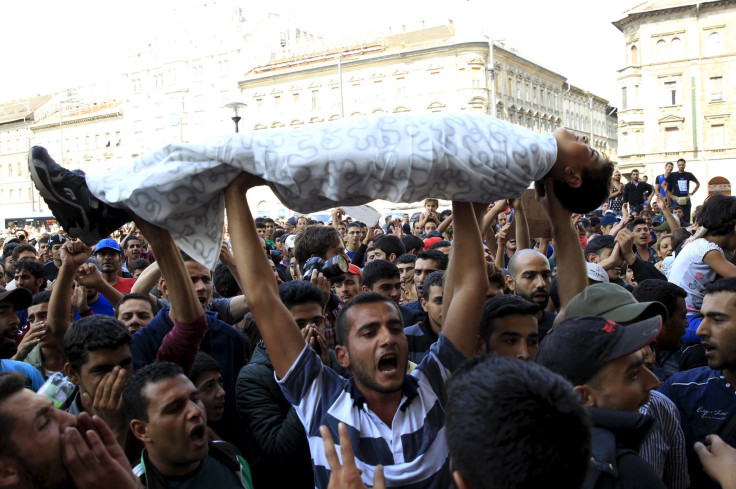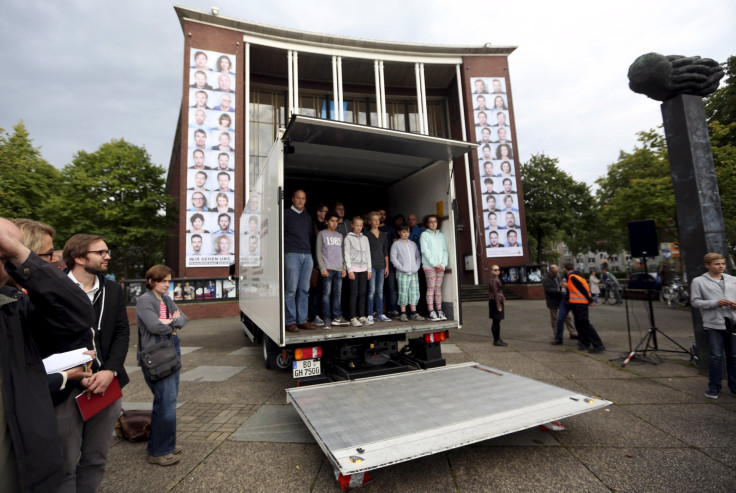Europe Refugee Crisis Update: Economic Migrants Not Welcome, Angela Merkel German Christian Democratic Caucus Says

As refugees and migrants continue to flood into Europe, a major German political party said Wednesday that economic migrants were not welcome in their country, according to Bloomberg. The Christian Democratic-led caucus, which counts German Chancellor Angela Merkel as a party member, drew a clear distinction between refugees fleeing conflicts in places such as Syria and migrants leaving their home countries to find better opportunities and jobs.
“Economic distress is no grounds for asylum,” said the statement on behalf of the group. “We don’t want migration into the social-welfare system.”
The statement comes after Merkel proposed this week a quota system for the 28-member European Union to evenly distribute the number of refugees each country accepts. Germany has estimated it would take in 800,000 refugees this year, shouldering a large part of the burden on behalf of EU member states. Over 400,000 refugees have arrived so far this year.
However, other EU leaders have been quick to reject Merkel’s proposal. British Prime Minister David Cameron rejected Wednesday a call from his own home secretary to take in 10,000 more refugees, according to the Guardian.

“We have taken a number of genuine asylum seekers from Syrian refugee camps and we keep that under review, but we think the most important thing is to try to bring peace and stability to that part of the world,” said Cameron. “I don’t think there is an answer that can be achieved simply by taking more and more refugees.”
The German government has expressed concern over the financial strain of accepting so many refugees. “We need clarity quickly on financial assistance,” said Germany’s Interior Minister Thomas de Maiziere. No clear price tag has emerged yet, but experts worry that if many of the refugees who enter Germany end up being unskilled workers, then German taxpayers would have to support them.
Merkel’s government said it would present measures in the next three weeks that would help local governments deal with the influx of refugees by easing some of the bureaucracy involved with registering refugees, Bloomberg reported.
As politicians continue to argue and trade blame, some citizens across Europe have taken on the responsibility to help new arrivals. Police in Munich said on Tuesday they had been overwhelmed by the outpouring of donations for refugees arriving by train from central and eastern Europe, according to local reports.
Please do not bring any more goods for the Moment.The donations at hand will be sufficient for the refugees present and arriving today.
— Polizei München (@PolizeiMuenchen) September 1, 2015But not all German citizens have been welcoming. Roughly 340 attacks have taken place so far this year in shelters where refugees have stayed.
© Copyright IBTimes 2024. All rights reserved.












